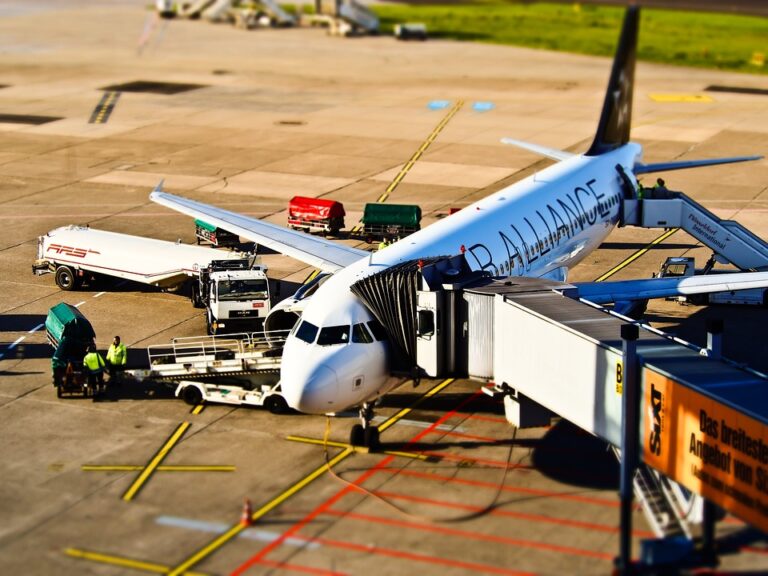The Future of Travel: How Airlines are Adapting to Sustainable Practices
As the world becomes increasingly aware of the impacts of climate change, airlines are stepping up to transform their operations toward sustainability. In this article, we explore the various strategies and innovations that have emerged in airline news, highlighting how companies are adapting to ensure a greener future for travel.
The Drive for Sustainable Aviation
The airline industry is responsible for approximately 2-3% of global carbon emissions, according to the International Air Transport Association (IATA). This statistic is a wake-up call for airlines worldwide to prioritize sustainable practices while ensuring economic viability. To tackle these challenges, major carriers are adopting a multi-faceted approach to reduce their carbon footprint and enhance sustainability.
Investing in Sustainable Aviation Fuel (SAF)
One of the most promising advancements in the aviation sector is the development and use of Sustainable Aviation Fuel (SAF). Unlike traditional jet fuel, SAF is produced from renewable sources, significantly lowering greenhouse gas emissions. Industry reports indicate that using SAF can reduce lifecycle carbon emissions by up to 80% compared to fossil fuels.
Many airlines are now collaborating with fuel producers to integrate SAF into their supply chains. For instance, United Airlines has committed to purchasing 50 million gallons of SAF over the next few years, marking a significant shift in fuel sourcing. This move not only sets a precedent in airline news but also positions the airline as a leader in sustainable practices.
Fleet Modernization
In addition to fuel innovations, airlines are focusing on fleet modernization. Newer aircraft models are designed to be more fuel-efficient and environmentally friendly. For example, the Boeing 787 Dreamliner and Airbus A350 offer significant improvements over older models in terms of fuel consumption and emissions.
Airlines like Delta and Southwest are investing billions in modernizing their fleets, replacing older planes with advanced models that have a smaller environmental impact. Upgrading fleets can lead to fuel savings of approximately 15-20%, making both financial and environmental sense.
Implementing Operational Efficiencies
Airlines are also streamlining their operations to enhance fuel efficiency. Here are some operational strategies being employed:
- Optimized Flight Paths: By using advanced technology and real-time data, airlines can create more efficient flight paths, minimizing fuel consumption.
- Weight Reduction Initiatives: Airlines are looking to shed any unnecessary weight, from lighter cabin materials to the thoughtful selection of in-flight services.
- Sustainable Ground Operations: Airports are also adapting to sustainability. For instance, using electric ground support vehicles can contribute to reduced emissions and energy use at airports.
These combined efforts yield significant benefits, as recent data suggests that operational efficiency improvements can lead to an overall reduction in carbon emissions by about 30%, contributing to the industry’s sustainability goals.
Climate-Conscious Consumer Trends
Today’s travelers are becoming increasingly conscious of their carbon footprint. According to a recent survey by Booking.com, approximately 61% of travelers stated that they would be more likely to book flights with airlines that are committed to reducing their environmental impact. This changing mindset has encouraged airlines to incorporate sustainable practices into their marketing strategies, ultimately fostering customer loyalty.
The Role of Technology in Sustainability
Technological advancements are enabling airlines to adopt more sustainable practices. Innovations like real-time data analytics and artificial intelligence are being utilized to monitor fuel consumption and optimize operations. For instance, airlines can now predict weather patterns and adapt their flight plans, resulting in fuel savings and reduced emissions.
Furthermore, investment in sustainable technologies is high on the agenda. Companies like Airbus are exploring hydrogen-powered aircraft, which could revolutionize air travel by potentially eliminating carbon emissions altogether.
The Importance of Partnerships
Collaboration is key in the quest for sustainability. Airlines are partnering with various stakeholders, including governments, fuel suppliers, and NGOs, to create a more sustainable aviation ecosystem. For instance, the industry-backed "Aviation Climate Taskforce" aims to foster a collaborative approach to tackle climate challenges while promoting transparency and sharing best practices.
Looking Ahead: The Path to Sustainability
As the airline industry evolves, the importance of sustainable practices will only grow. With regulations tightening and consumer preferences shifting, airlines must prioritize sustainability to stay competitive. The integration of SAF, fleet modernization, operational efficiencies, and technological advancements are paving the way for greener air travel.
In the coming years, the focus on sustainability will transform the airline news landscape. Airlines that successfully incorporate these practices will not only enhance their brand image but also contribute positively to the environment.
Conclusion: A Community Effort
The journey towards sustainable air travel requires shared responsibility among airlines, travelers, and other stakeholders. As consumers continue to demand more eco-friendly options, the pressure will mount on airlines to deliver. By adopting innovative practices and fostering collaboration, the aviation sector can chart a course towards a sustainable future.
For more insights into how the travel industry is changing, check out these related articles on buzzo.live: Sustainable Travel Tips for Eco-Conscious Travelers, The Evolution of Airline Loyalty Programs, and 10 Must-Visit Eco-Friendly Destinations. Additionally, you can learn more about sustainable aviation from reputable resources like the International Air Transport Association and Airlines for America.
Image Suggestions:
- Image Alt Text: "Airlines adopting sustainable practices with electric ground vehicles."
- Image Alt Text: "Modern aircraft designed to reduce fuel emissions and increase sustainability."
This comprehensive article showcases the efforts and innovations airlines are making in sustainable travel, ensuring readers are informed and engaged with current airline news trends.


